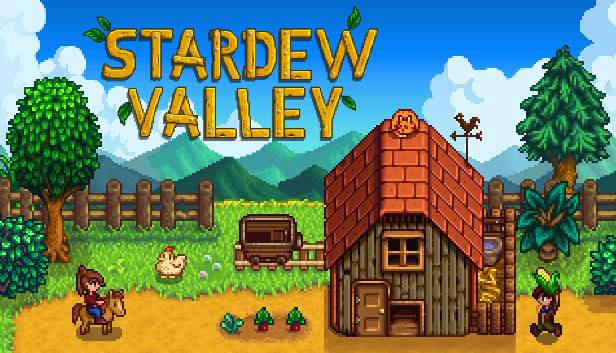I played Stardew Valley on the Switch, an open-ended indie farming simulator developed by ConcernedApe. We also read Play Like a Feminist, in which Shira Chess deconstructs popular notions of video games as traditionally masculine and proposes a radical, intersectional feminist theory of play. When thinking about Stardew Valley from a feminist lens, I was very aware of the ways that Stardew Valley could be thought of as political, and the messages it implicitly (and explicitly) sends. To play Stardew Valley as a feminist means to consider the conscious choices regarding gender, race, and capitalism as nontrivial. Stardew Valley makes progress in the gaming world by upending binary gender stereotypes and critiquing capitalism, but falls short of being a truly feminist game due to its lack of intersectionality in character considerations.
Chess writes that an emphasis on violence and toxicity in video games has “put video games at odds with feminism” (12), but Stardew Valley upends all of these traditional notions. The art is simple, the music is peaceful, the town is quaint yet lively, and the characters have a great deal of heart and soul. The story of the game is very wholesome: the player rebuilds the community center, turning it from a run-down, abandoned building into a lively gathering space, and chooses between the monopolistic corporation JojaMart and local shopkeeper Pierre (choosing Pierre is obvious).
Additionally, it upends traditional stereotypes in the characters that populate the Valley. Initially, many of the characters appear to follow gendered archetypes: Alex is a misogynistic jock; Haley is bubbly and girlish, blonde and ditzy; Shane is a rude alcoholic. However, as the player gets to know each character, their backgrounds refute and upend these stereotypes, leaving the player with a more full sense of who these characters are and the dimensions of their personalities. The player discovers Alex crying at the beach on the anniversary of his mother’s death, explaining why he lives with his grandparents. Haley organizes a charity event to support Penny and help her pay for school supplies. Shane is suffering from depression, and one night, the player finds him by the beach, passed out and alone. All characters, through patience and thoughtful gift-giving, have cutscenes that are discoverable that make them so much more loveable and three-dimensional. Additionally, the player can choose between a male and female character and marry whoever they’d like, regardless of gender – all romanceable characters will be attracted to the player regardless of their chosen gender, making everyone canonically bisexual. I chose to marry Emily, an artsy hippie.
However, there are still places in which Stardew Valley falls short, namely in intersectional identities regarding race and gender. There are only a few canonically non-white characters – Demetrius and Maru in town, and later on, the enigmatic Mr. Qi. I have some issues with the way Mr. Qi is portrayed in the game as a stereotypical Chinese or Asian gambler. He is mysterious and works at a casino in the desert. It is reasonable to assume that he is meant to be Chinese, given his last name, making him the only Asian character in the game. There is nothing more that can be discovered about him – no insight into his background or life, so all we see is that he is a mysterious figure who spends time in the casino.
Additionally, since Stardew Valley seems eager to address issues of gender in its gameplay (i.e. Alex reckoning with his homophobia and misogyny), it would be wonderful if it could touch on more topics related to gender by including nonbinary or trans characters, and by touching on other social identities like race and sexuality. If the player doesn’t romance anyone, all of the characters will default to heterosexual pairings. Chess and I both recognize that a representational politics of play is not fully comprehensive, and does not define a feminist game, but it certainly doesn’t hurt, and would help me and other players feel even more connected to the Valley.
Chess writes that “playing like a feminist exceeds the boundaries of gender, yet still advocates for gender equality.” Stardew Valley is a wonderful game, and no other game has brought me the same joy, peace, and warmth. However, I believe that Stardew Valley cannot be considered a distinctly feminist game, as Chess would define it, since it falls short regarding intersectionality, particularly in regards to race.
Discussion question: How does the discussion of gender in Stardew Valley affect how the player experiences the game?



